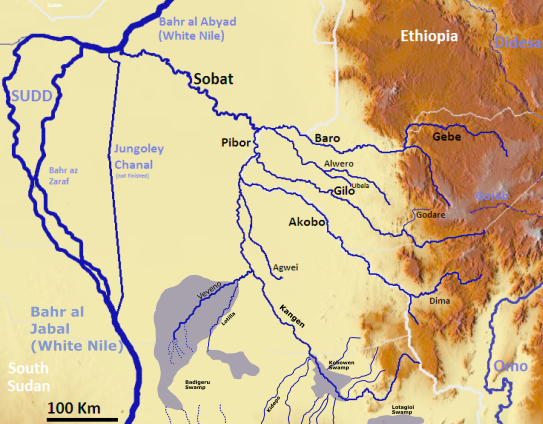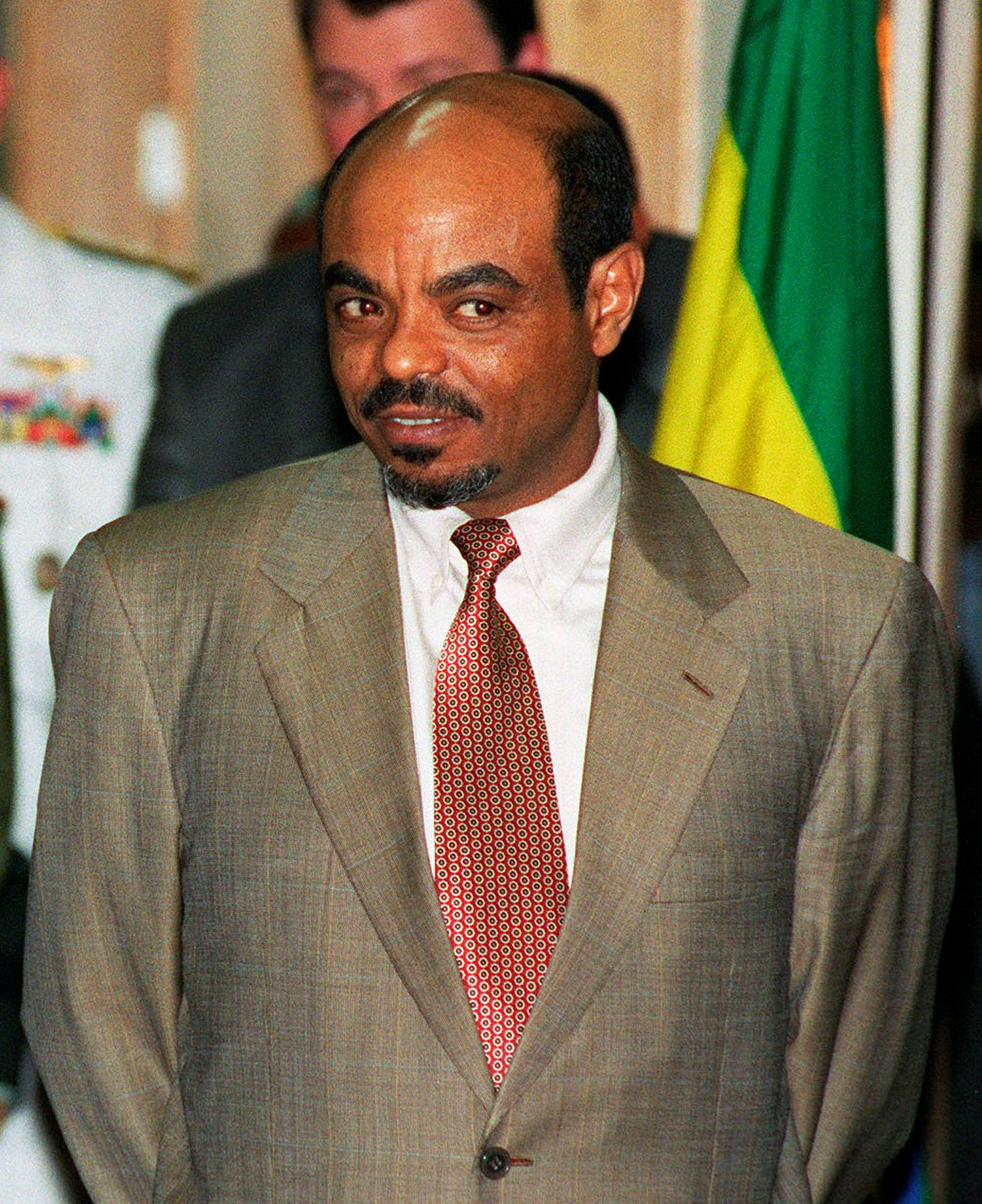|
Gambela People's Democratic Movement
The Gambela Peoples’ Democratic Movement (GPDM, am, የጋምቤላ ሕዝቦች ዴሞክራሲያዊ ንቅናቄ, translit=Yä-Gambella Həzbočč Demokrasiyawi Nəqnaqe), also known as the Gambela People’s Democratic Movement or Gambella Peoples’ Unity Democratic Movement (, GPUDM),GPUDM vows to ensure public benefit from fruits of dev't Walta Information Center, 2 May 2010. was a in the of |
Prosperity Party
The Prosperity Party ( am, ብልጽግና ፓርቲ, Bilits’igina Paritī; om, Paartii Badhaadhiinaa) is a political party in Ethiopia that was established on 1 December 2019 as a successor to the Ethiopian People's Revolutionary Democratic Front (EPRDF) by incumbent Prime Minister Abiy Ahmed. The merger into a countrywide party is part of Abiy's general policy of distancing the country's politics from ethnic federalism. It ran for the first time in the 2021 general election. Composition The Prosperity Party was formed and formally recognised by the National Electoral Board of Ethiopia (NEBE) in December 2019 through the merging of three former EPRDF member parties, the Amhara Democratic Party (ADP), the Oromo Democratic Party (ODP) and the Southern Ethiopian People's Democratic Movement (SEPDM). The Afar National Democratic Party (ANDP), the Benishangul-Gumuz People's Democratic Unity Front (BGPDUF), the Ethiopian Somali People's Democratic Party (ESPDP), the Gambela Pe ... [...More Info...] [...Related Items...] OR: [Wikipedia] [Google] [Baidu] |
Gilo River
The Gilo River is a river in the Gambela Region of southwestern Ethiopia. It is also known by a variety of names: the Gimira of Dizu call it the "Mene", while the Gemira of Chako call it "Owis", and Amhara and Oromo settlers in the early 20th century knew it by a third name, "Bako". From its source in the Ethiopian Highlands near Mizan Teferi it flows to the west, through Lake Tata to join the Pibor River on Ethiopia's border with Sudan. The combined waters then join the Sobat River and the White Nile. The Gilo River flows mainly through the Baro Salient, a portion of Ethiopia that juts westward into Sudan. The river valley was subjected to a great deal of prospecting for gold before World War II and in the 1950s, but not enough was found to make commercial extraction viable. [...More Info...] [...Related Items...] OR: [Wikipedia] [Google] [Baidu] |
Benishangul-Gumuz People's Democratic Unity Front
The Benishangul Gumuz People's Democratic Unity Front (BGPDUF; am, የቤንሻንጉልና ጉሙዝ ሕዝቦች ዴሞክራሲዊ አንድነት) was a political party in Ethiopia. In the 2010 elections, the BGPDUF won 9 seats. In local elections held the same day, the BGPDUF won 98 of the 99 seats in the Benishangul-Gumuz parliament. The BGPDUF emerged from a 1996 conference led by the former Deputy Prime Minister Tamrat Layne. Previous to the conference, relations between the dominant Ethiopian People's Revolutionary Democratic Front (EPRDF) and its partner, the Benishangul People's Liberation Movement (BPLM) had grown strained, and the BPLM was ineffective due to internal factionalism. The conference announced its members had agreed that "all the parties should evaluate and cleanse themselves of ' OLF sympathisers', 'supporters of Sudanese interventionists' and 'corrupt officials'". Whereupon, under the direction of EPRDF cadres, members of not only the BPLM but the oth ... [...More Info...] [...Related Items...] OR: [Wikipedia] [Google] [Baidu] |
Amhara Democratic Party
The Amhara Democratic Party (ADP) ( am, አማራ ዴሞክራሲያዊ ፓርቲ), originally known as Amhara National Democratic Movement (ANDM), was a political party in Ethiopia. The party was one of four members of the Ethiopian People's Revolutionary Democratic Front (EPRDF) that ruled Ethiopia at the time. In 2012, the party chairman was Demeke Mekonnen, who replaced Addisu Legesse in 2010. In November 2019, prime minister Abiy Ahmed, holding the role of EPRDF chair, unified the constituent parties of the coalition into a new party called Prosperity Party. History The Ethiopian People's Democratic Movement (EPDM), the precursor of ANDM, was founded by former members of the Ethiopian People's Revolutionary Party (EPRP) and supported by the Tigray People's Liberation Front (TPLF). It was originally based in Waghimra in Wollo Province Wollo ( Amharic: ወሎ) was a historical province of northern Ethiopia that overlayed part of the present day Amhara, Afar, and ... [...More Info...] [...Related Items...] OR: [Wikipedia] [Google] [Baidu] |
Afar National Democratic Party
The Afar National Democratic Party ( am, የአፋር ብሔራዊ ዴሞክራሲያዊ ፓርቲ; ANDP) was a political party in Ethiopia. At the legislative elections held on 15 May 2005, the party won 8 seats, all from the Afar Region. The current Minister of Social Affairs and the Deputy Chairman of Pastoralist Affairs are members of the party. It was reported that the ANDP was created in the latter half of 1999 from a merger of the Afar Liberation Front (ALF) and the Afar People's Democratic Organization with three smaller organizations—the Afar National Liberation Front, the Afar Revolutionary Democratic Unity Front (ARDUF) and the Afar National Democratic Movement. However, there have been more recent reports indicating that the ALF and ARDUF continued operate as independent organizations. In the August 2005 Regional assembly elections, the party won 84 out of 87 seats in the Afar Region. In December 2019, the party merged with the Amhara Democratic Party (ADP), the ... [...More Info...] [...Related Items...] OR: [Wikipedia] [Google] [Baidu] |
Ethiopian General Elections, 2005
General elections were held in Ethiopia on 15 May 2005, for seats in the House of Peoples' Representatives and four regional government councils. Under pressure from the international community, Prime Minister Meles Zenawi promised that this election would be proof that more democracy would come in this multi-ethnic nation; international elections observers from the European Union (EU) and the U.S.-based Carter Center were present to observe the results. This election succeeded in attracting about 90% of the registered voters to the polls. A government ban on protests was imposed throughout the election period. Campaigning EU observers remarked on the "significantly enlarged freedoms for political campaigning in comparison to previous elections". Political parties campaigned actively, and opposition parties appeared to be increasingly active in the rural areas. The observer mission described the atmosphere "during the campaign was calm, culminating in two massive, peaceful ralli ... [...More Info...] [...Related Items...] OR: [Wikipedia] [Google] [Baidu] |
Ethiopian General Elections, 2010
General elections were held in Ethiopia on 23 May 2010. The National Election Board of Ethiopia (NEBE) reported that a total of 29,170,867 people were registered to vote in this election. There was a total of 4,525 candidates running for the open positions—which included 546 seats in the House of Peoples' Representatives; 1,349 of whom were members of the ruling Ethiopian People's Revolutionary Democratic Front (EPRDF), 374 members of parties loosely aligned with the EPRDF, 2,798 members of opposition parties, and 4 independent candidates. Conduct The incumbent party EPRDF and opposition parties signed the Election Code of Conduct. They agreed on time allocation of public media, though the opposition leaders complained about the time allocated to them, saying that it was unfair for the ruling party to take the highest share of the time. The parties participated in a campaign debate that was broadcast on the public television, ETV. One opposition party, the All Ethiopian ... [...More Info...] [...Related Items...] OR: [Wikipedia] [Google] [Baidu] |
Legislative
A legislature is an assembly with the authority to make laws for a political entity such as a country or city. They are often contrasted with the executive and judicial powers of government. Laws enacted by legislatures are usually known as primary legislation. In addition, legislatures may observe and steer governing actions, with authority to amend the budget involved. The members of a legislature are called legislators. In a democracy, legislators are most commonly popularly elected, although indirect election and appointment by the executive are also used, particularly for bicameral legislatures featuring an upper chamber. Terminology The name used to refer to a legislative body varies by country. Common names include: * Assembly (from ''to assemble'') * Congress (from ''to congregate'') * Council (from Latin 'meeting') * Diet (from old German 'people') * Estates or States (from old French 'condition' or 'status') * Parliament (from French ''parler'' 'to speak') ... [...More Info...] [...Related Items...] OR: [Wikipedia] [Google] [Baidu] |
Majangir
The Majang people, or ''Majangir'', live in southwestern Ethiopia and speak a Nilo-Saharan language of the Surmic cluster. The 1998 census gave the total of the Majangir population as 15,341, but since they live scattered in the hills in dispersed settlements (Stauder 1971), their actual total number is undoubtedly much higher. They live around cities of Tepi, Mett'i, and scattered southwest of Mizan Teferi and towards Gambela. Culture They traditionally lived in small groups, farming for three to five years, then moving on as the fertility of the soil diminished (Stauder 1971). They were active bee keepers, collecting honey from hives consisting of hollowed logs placed in trees. They did some hunting and snaring of game and trapping of fish. They raised the bulk of their own food by farming, animals providing only a small part of their diet. Food production has changed since Stauder's time. The single most obvious change is that people are now living in permanent settleme ... [...More Info...] [...Related Items...] OR: [Wikipedia] [Google] [Baidu] |
Komo People
The Kwama (also called Gwama and Komo), are a Nilo-Saharan-speaking community living in the Sudanese-Ethiopian borderland, mainly in the Mao-Komo special woreda of the Benishangul-Gumuz Region in Ethiopia. They belong, culturally and linguistically, to the Koman groups, which include neighboring communities such as the Uduk, Koma, and Opuuo. Although they traditionally occupied a larger territory, they have been forced to move to marginal, lowland areas by the Oromo from the 18th century onwards. In some villages Kwama, Oromo and Berta live together. The Kwama are often called "Mao" by other groups, especially by the Oromo. The people who live in the southern area and near the Sudanese borderland often call themselves "Gwama" and use the term "Kwama" to refer to those living further to the south and in Sudan. These other "Kwama" are usually known by anthropologists as Koma or Komo (Theis 1995). In recent years, many people belonging to this ethnic group have been resettled by ... [...More Info...] [...Related Items...] OR: [Wikipedia] [Google] [Baidu] |
Shita
Opo is an ethnic group of South Sudan and Ethiopia. They speak Opuuo, a Koman language. Most members of this ethnic group are not Muslims. The 2007 Census of Ethiopia lists 1,602 individuals as Upo (413 in the Southern Nations, Nationalities, and People's Region (SNNPR) and 990 in the Gambela Region). However, the 1994 census records 271 members of whom 224 lived in the Oromia Region Oromia (Amharic: ) ( om, Oromiyaa) is a regional state in Ethiopia and the homeland of the Oromo people. The capital of Oromia is Addis Ababa. It is bordered by the Somali Region to the east; the Amhara Region, the Afar Region and the ... (mostly in the Mirab Shewa Zone), 38 in the SNNPR, and less than ten in either of the other Regions closest to Sudan. [...More Info...] [...Related Items...] OR: [Wikipedia] [Google] [Baidu] |




